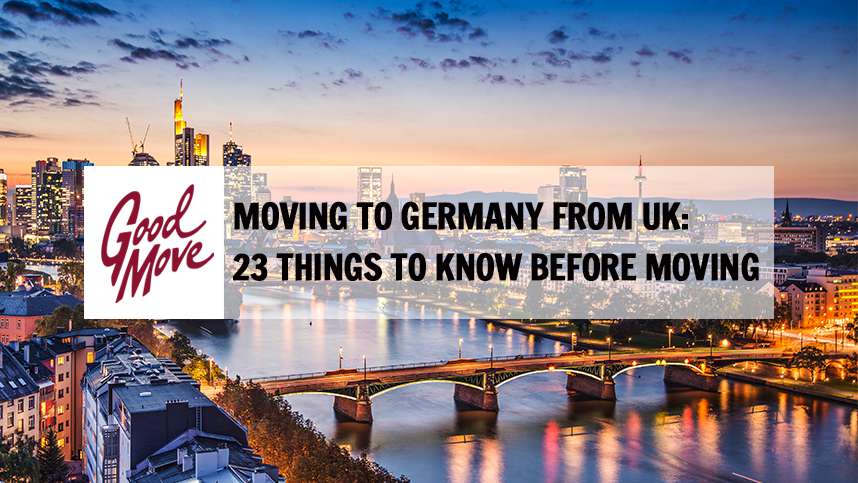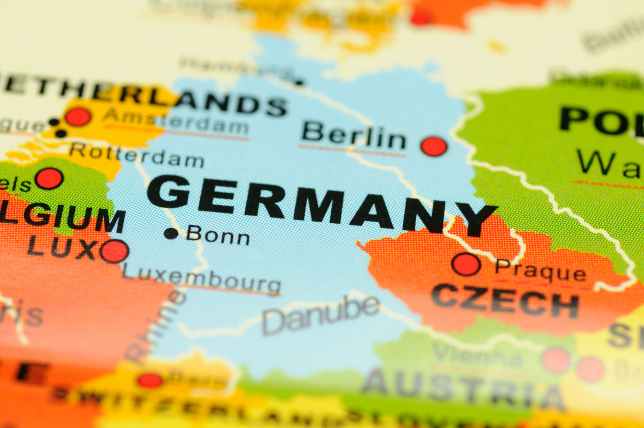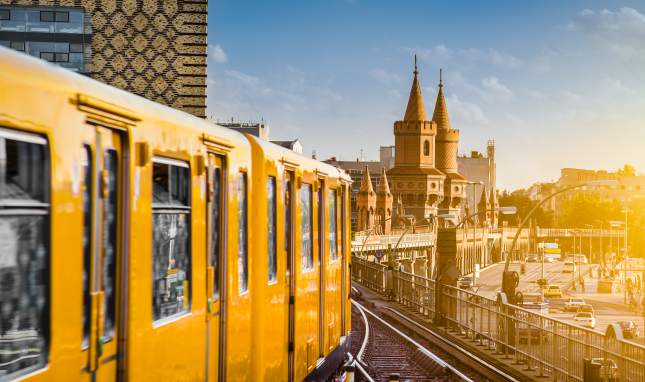
Moving to Germany from UK: 23 Things to Know Before Moving
Many people know Germany as the powerhouse of the EU.
While it may not be the number location for expats, many find themselves moving to Germany from UK for plenty of reasons, whether that be jobs, family, better quality of life or safer living.
Germany has an incredibly active economy and is attractive to those all around the world. With over 100,000 Brits living there already, there is a large expat community to draw on from information before you move.
There are many things to consider before moving to Germany, and just some things you should know in general.
This article has been created to help make your life that little bit easier. Without further ado, here are 23 things you should know before moving to Germany from the UK:
Table of Contents
1. Where to live
Germany is split up into 16 states. When you move to Germany from the UK, this can be somewhat overwhelming at first.
However, each state is suited to different people, depending on jobs, outdoor life, proximity to major cities and more.
There are plenty of lists about ‘best places to live in Germany’, but the three most popular tend to be Berlin, Munich and Hamburg.
2. Learn About Your Local Area
After choosing a city, your neighbourhood is the next important decision to make.
When you move to Germany, your local area will need to have everything you’re looking for including amenities, green space, attractive commuter time and more.
Whether you’re looking for culture, history, nightlife or family-oriented area; it’s imperative to do your research before moving.
3. VISAs
Brexit has been delayed, yet again, meaning that moving to Germany from the UK is currently more straightforward than it will be in the years to come.
If you plan on staying for longer than 3 months, you must register at the local register office within 14 days of arrival.
If you plan on moving here after Brexit, then make sure you are aware of the rules about moving here as set out in the Withdrawal Agreement.
4. Shipping to Germany Made Stress-Free
Removals to Germany from the UK are fortunately rather easy.
With a short shipping route to mainland Europe, there is little to worry about when shipping your products with a removals company, as long as they are BAR registered and have a wealth of good testimonials.
Unlike other countries around the globe, shipping to Germany should only take a few days, with customs checks occurring after this. Time your arrival well, and you can move in alongside when your items arrive.
5. World-Class Healthcare
Germany has the world’s oldest universal health care system, dating back to Bismarck’s social legislation of the 1880s.
As an employee, you are covered for health insurance – either under the statutory health insurance system or as a member of a private health insurance.
Healthcare in Germany is incredibly reliable. When you start a job in Germany, your employee will usually register you with a German health insurance company. Your employer will contribute to your healthcare and automatically deduct your contribution from your salary.
6. Bank Accounts
Opening a bank account in Germany is exceedingly important.
Without a bank account, you will not be able to rent an apartment or sign up for an internet provider.
You can sign up for a German bank account from abroad; you do not have to be in the country to open one, depending on the bank of course.
Make sure you do thorough research in choosing the right bank for you, and it’s always good to be on the lookout for rewards when joining certain banks.
7. Got Pets?
Bringing your pets to Germany is well within the realm of possibility.
When transporting any animal to another country, plenty of checks must be done due to foreign contaminants that animals carry with them.
One of the first checks is for rabies, and your pet must also be micro-chipped, certifying that they are rabies-free.
When bringing dogs, Germans have a high standard of how they must act in public. It is also worth noting that there are a few specific breeds that are not allowed into Germany at all.
8. Get a Nice Car
Germany is vast, making driving almost a necessity.
Moving to Germany from UK means you’ll have to adapt to driving on the right side of the road. Alongside this, there are specific items you must have (by law) in your car at all times, including a first aid kit, a reflective warning triangle and reflective jackets.
You’ll have to register your car with the German authorities, and it will have to undergo the German equivalent of an MOT (TUV, DEKRA or GTU depending on the state) every year.
You’re sure to have a wonderful time on these well-maintained roads, especially on the areas of the Autobahn that have no designated speed limit.
9. Book Your Travel Well in Advance
As with any move, it’s encouraged that you plan way ahead of time and book your flights early to prevent them from reaching extortionate prices.
If you’re not sure on your moving date, you could always opt for flexible flight bookings; or plan to move in a time that is not very busy both in terms of summer holidays and days of the week (move on a Tuesday not a Friday for example).
10. Start the Journey to German Language Proficiency
You’ll be surprised how many people don’t bother with this stage.
Learning German will make your life exponentially easier. You’ll be able to converse with your neighbours, talk to the local population far easier and enjoy your time in Germany more.
There are plenty of ways to learn German, even after you arrive in Germany.
11. Excellent Public Transport
Germany is well known for its efficiency and economic stability within the EU.
The well-developed and top-quality transport systems reflect this. The cities have plenty of modes of transport such as tram, bus, subway and trains. They also have dedicated cycle lanes, making it safer for cyclists on their commute to work.
Many of the cities in Germany are connected by the InterCity Express (ICE). These high-speed trains travel up to 200km/h, making a weekend away in Germany far more accessible.
12. Amazing Food
Everyone knows that Germany do amazing sausages.
But this isn’t the extent of their cuisine. They have so much more to offer, and Brits only usually find this out after moving to Germany from UK.
Some of their best food include Sauerkraut (fermented cabbage) and Spatzle (egg noodles). If you’re a lover of seafood, then head towards the north. You will find a broad collection here, especially in cities such as Hamburg, where seafood lovers rejoice.
13. Cash is King
While card machines are consistently on the rise throughout the world, many countries will still have regions that prefer cash payments.
When you’re living in Germany, depending on the region you go too, you may find that you often require to have cash in your wallet. This is less common in the UK, but as a good rule, make sure always to be carrying some amount of cash on you.
This way, you won’t be caught out when the restaurant announce they do not accept card, leaving you slightly red-cheeked.
14. Learn to Love the Bike
In Germany, the city is built with the bike in mind.
You’ll find bike lanes at every corner, ensuring your safety as a cyclist in the busy German cities. Finding a used bike for a reasonable amount should be more than possible.
If not, then you can always use public bikes. Several cities have a bike-sharing service for only a small annual fee. It’s not only good for the environment; it’s also a great way to keep fit!
15. More Public Holidays
Moving to Germany from the UK, you may notice an extra five days of public holidays appear.
Your eyes do not deceive you; it’s genuinely true!
While the north of Germany is mostly protestant, the south is primarily catholic. They both have religious public holidays throughout the year, so the dates of these will vary depending on the region you have decided to settle in Germany.
Either way, that’s an extra week’s worth of holiday that you can spend with the family or travelling throughout the country or even the world.
16. Sunday is Genuinely a Day of Rest
Living in England, you’ll notice that there is always background noise coming from somewhere. Even on a Sunday, you’ll hear chainsaws, building works, noisy lorries and the like.
Moving to Germany, you’ll notice one very distinct thing. On Sundays, it is oddly quiet. There will be no building works, no loud lorries and you won’t even hear your neighbours lawnmower.
This is because, in Germany, the “Quiet Law” is in place. While this varies between regions, it limits the use of noisy equipment on Sundays, which means that Sunday can actually be a day of rest.
17. One of the Safest Countries in the World
Germany has long been known as a safe country. It often rates highly on the lack of crime indexes, and therefore ranking highly on the safety indexes too.
Germany’s stable infrastructure and police force ensure that Germany is safe overall. The most common crimes are petty theft or pickpocketing.
It is ranked 13th on the World’s Safest Countries list, coming 22 places ahead of the United Kingdom.
18. Making Friends
Making friends in Germany is mostly dependant on whether or not you have learnt of the language as well as where you are moving to.
If you don’t know much of the language, but more to cities such as Berlin, you will find large volumes of expats here as well as Germans who have a good grasp of the English language.
If you are in more of a rural area, you will struggle if you know little German. No matter where you are, be friendly and you’ll likely end up talking to someone, even if it is primarily through Google Translate.
19. Career Opportunities
While it can be challenging to know where to start your job hunt, take solace that if you’re qualified with a degree or years of experience, you’ll likely find a job here in Germany.
Germany has one of the lowest unemployment rates in the EU and there is a shortage of workers in skilled sectors, especially engineers and IT specialists.
There are plenty of sites you can utilise to find a job in Germany, so make sure to do your research and find the right job for you.
20. Everything is Recyclable
Depending on where you move from in the UK, this will either be far more complex for you or the same as always.
While some places in the UK put all their recycling into one bin, in Germany everything is separated. I mean everything.
Organic waste has its own bin. Glass bottles are separated by colour. Something which the UK doesn’t have is a bin for electronics, Germany does though.
Moving to Germany from UK, you’ll see some things get slightly more complicated. This is one of those things.
21. Brilliant Education System
Germany’s education system is one of the best in Europe. As with everywhere, school quality varies from place to place; however, the overall quality of education is very high.
A common thing that most expats do is to send their children to international schools. This makes sense, as many public schools will not teach in English; and it is often better to have an internationally recognised education.
There are several international schools in Germany ranging from American and British to French international schools. You will have plenty of choice when it comes to education when you move to Germany.
22. Travelling in the Country
You moved here six months ago, you’ve got your first week holiday coming up. Where are you going to go?
If you’re not sure, then travel within your new home country. Germany has a fantastic array of holiday destinations and some truly stunning locations just waiting to be explored.
Why not go on a cruise in the North Sea; relax on the beaches; discover some of the other cities in Germany or even an outdoors holiday in one of Germany’s 15 national parks.
23. Cost of Living
Moving to Germany from UK, you’ll see a significant decrease in your monthly spend. The tax system is incremental in Germany, meaning it starts at 14% and climbs up to 42% when you reach €55,961. You will be taxed 42% up until €265,327, after which you are taxed at 45%.
In direct comparison with other EU cities, Germany is not very expensive.
When comparing Berlin to London; Berlin rent prices are 50% cheaper, consumer prices are 20% lower and an average meal in a restaurant is 40% cheaper – statistics courtesy of Numbeo.
You’re likely to save far more money in Germany than you could in London, meaning you can store the surplus money for a rainy day.
Raring To Get Moving to Germany From UK?
After reading the above facts about Germany, have you convinced yourself to move?
GoodMove are here to help. We have over 35 years’ experience handling removals throughout the UK and Europe.
Our customer-driven approach to removals has earned us critical acclaim. We believe our written testimonials, which can be found on Reference Line, are our testament to the service we deliver.
We also offer flexible self-storage options to our customers either as part of a tailor-made removals package or as a standalone service.
To find our how GoodMove’s removals service can work for you don’t hesitate to contact us on the number listed above or use the quick quote form.
Get a Quote
Recent Posts
- Cheap Removals – 7 Ways to Reduce Moving Costs in 2026 29th Jan 2026
- Moving House Council Tax: The Ultimate Guide 22th Jan 2026
- How To Get An Accurate Removals Quote 15th Jan 2026
- Office Removals in Essex: A 5-Step Planning Checklist 08th Jan 2026
- Happy New Year 2026 from GoodMove 01th Jan 2026
- Season’s Greetings: Merry Christmas and Happy Holidays from GoodMove 25th Dec 2025
- 14 Best Kent Villages to Live in 2026: The Ultimate Guide 18th Dec 2025
- Clear the Clutter After Christmas: How GoodMove Helps You Store Belongings Safely in Winter 11th Dec 2025
- Why You Should Start Planning Your New Year Move Now 05th Dec 2025
- Moving House in Winter: 9 Expert Tips to Winter-Proof Your Move (2025 Guide) 04th Dec 2025
- 10 Best Norfolk Seaside Towns to Live or Visit 28th Nov 2025
- 9 Best Kent Commuter Towns for 2025 21th Nov 2025
- Best Places to Retire in Essex and Suffolk 14th Nov 2025
- Living in Chatham – The Ultimate Moving Guide 06th Nov 2025
- Living in Ipswich – 27 Reasons to Move to Suffolk 30th Oct 2025
- Understanding Your Removals Quote: What’s Included and What’s Not? 23th Oct 2025
- Commuting from Essex to London: The Ultimate 2025 Guide 16th Oct 2025
- How to Move Large or Awkward Furniture (And When to Call the Pros) 09th Oct 2025
- How To Move House in Just Two Months – 2025 Guide 03th Oct 2025
- How To Declutter Before Moving House – A Minimalist’s Guide 24th Sep 2025






